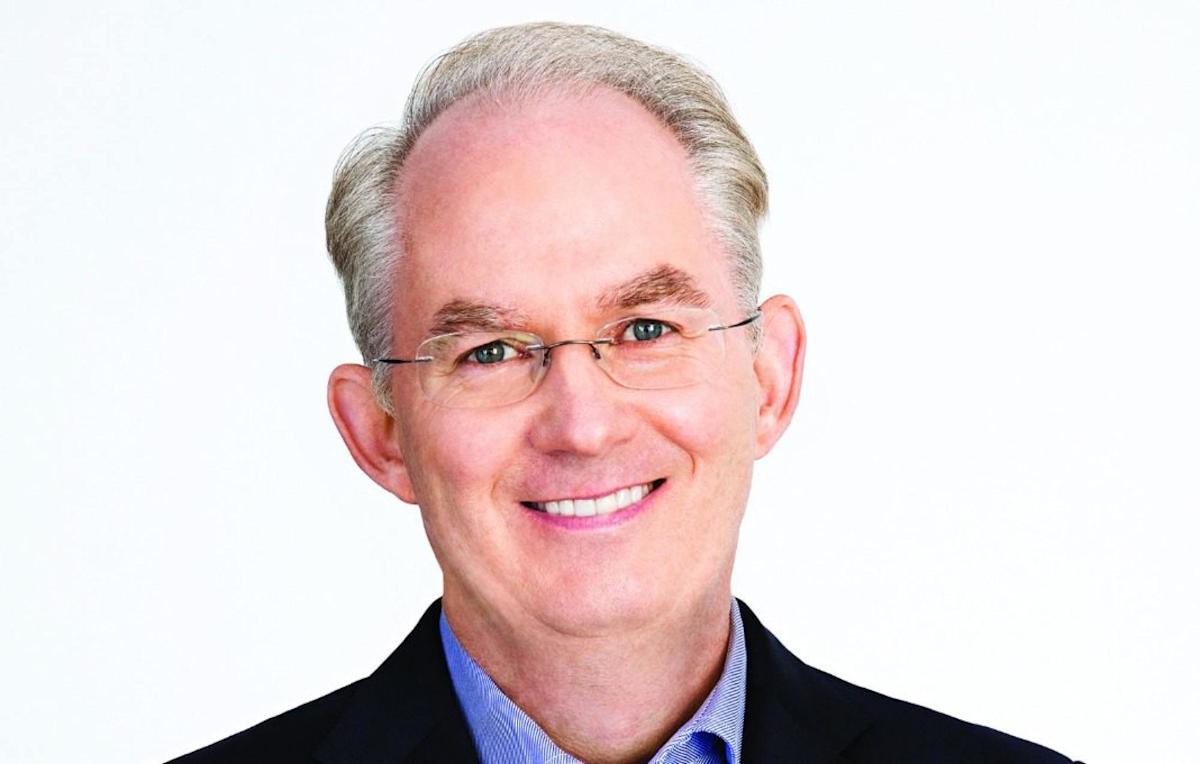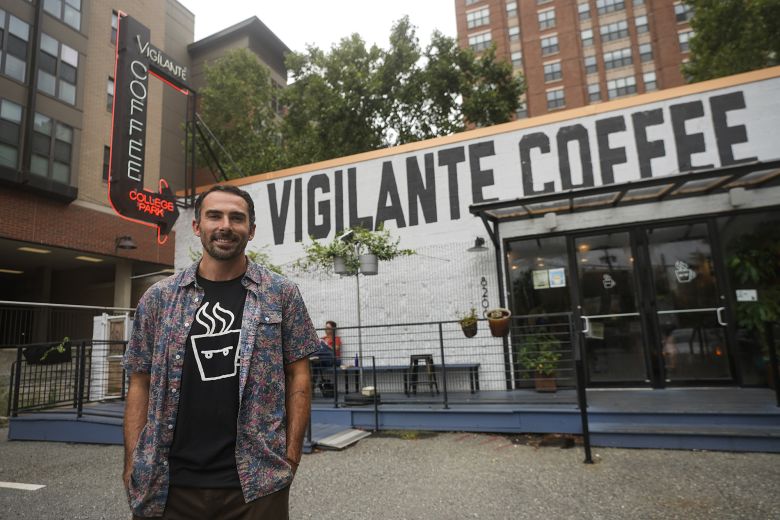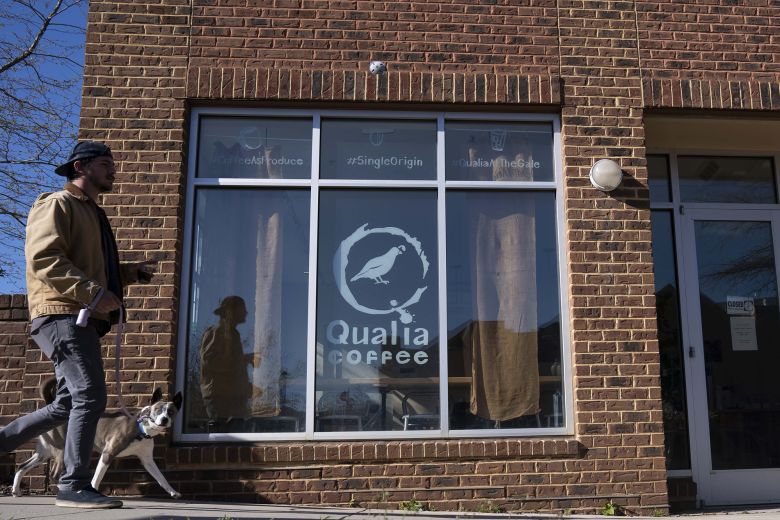Breast cancer remains the most common cancer among women worldwide. According to the World Health Organization (WHO), in 2024, around 2.4 million women were diagnosed with breast cancer globally, and approximately 685,000 women died from the…
Blog
-

Fintech can be catalyst to make Hong Kong a next-level financial hub: Broadridge CEO
Embracing technology platforms for applications such as electronic proxy voting, private debt underwriting and trading of repurchase (repo) agreements can help Hong Kong elevate its standing as Asia’s top financial hub, according to a leading US fintech firm.
Technologies that simplified investor engagement had been a catalyst for growth in other markets, said Tim Gokey, CEO of New York-listed Broadridge Financial Solutions, adding that fintech could enhance corporate governance and product innovation to help the city strengthen its connections with mainland China and the wider world.
“We’re investing in the region and are excited to be part of the rapidly growing Hong Kong market, which is emerging as a leading financial hub in Asia and the primary point of connectivity between the mainland and global markets,” Gokey said in an interview during a trip to the city last month.
Do you have questions about the biggest topics and trends from around the world? Get the answers with SCMP Knowledge, our new platform of curated content with explainers, FAQs, analyses and infographics brought to you by our award-winning team.
His comments came before financial regulators in Hong Kong and mainland China unveiled a series of measures last month to allow cross-boundary bond repo business and to strengthen the city’s fixed income and currency markets – all initiatives that had been discussed and anticipated among market participants for a number of years.
“We see a strong opportunity to support that growth by enhancing trust and transparency in corporate governance,” added Gokey, whose firm doubled its Asian team to nearly 500 over the past five years, with Hong Kong accounting for more than 80 people.
As companies increasingly turned to capital markets, beyond banks, for fundraising, the transparency and trust of corporate governance became essential, he said, pointing to the US as an example.
Tim Gokey, CEO of New York-listed Broadridge Financial Solutions. Photo: Handout alt=Tim Gokey, CEO of New York-listed Broadridge Financial Solutions. Photo: Handout>
“Strong corporate governance is one of the key drivers behind the success and confidence in US capital markets,” he said. “It’s not the sole answer, but a crucial contributing factor.”
Broadridge’s corporate-governance offerings, including proxy-voting platforms, have a global reach, processing shares held in street names at more than 1,000 broker-dealers and custodian banks. Its proxy services covered about 80 per cent of outstanding shares of US publicly listed companies in 2023.
Continue Reading
-
DPM welcomes Pak-Afghan agreement – RADIO PAKISTAN
- DPM welcomes Pak-Afghan agreement RADIO PAKISTAN
- Afghanistan, Pakistan agree to immediate ceasefire after talks in Doha Al Jazeera
- Taliban’s new ploy Dawn
- Pakistan-Afghanistan cease-fire ends as Taliban warns of retaliation | Daily Sabah Daily…
Continue Reading
-

How Investors May Respond To Aeluma (ALMU) Boosting Growth Funds With $25 Million Capital Raise
-
Aeluma, Inc. recently completed its underwritten public offering, raising approximately US$25.4 million in gross proceeds and boosting its cash position to about US$38 million to invest in manufacturing partnerships and engineering talent.
-
This significant cash increase could further position Aeluma for operational expansion through new hires and enhanced manufacturing capabilities.
-
To assess how these developments affect Aeluma’s investment narrative, we’ll focus on the company’s increased capacity to invest in growth initiatives.
Uncover the next big thing with financially sound penny stocks that balance risk and reward.
To own shares in Aeluma today is to believe the company can turn rapid revenue growth and cutting-edge photonics into lasting profitability, even in a competitive and volatile sector. The recent US$25.4 million public offering lifts Aeluma’s cash reserves to around US$38 million, giving the company more room to pursue manufacturing partnerships and attract engineering talent. This extra cash could accelerate key short-term catalysts like new product launches and customer wins, while potentially reducing worries about near-term funding pressures. Still, with a recent uptick in insider selling and a history of substantial shareholder dilution, questions remain about how quickly the business can transition from high growth to sustainable profit. The fresh cash raises the company’s ceiling for expansion, but does not remove risks around execution, dilution, or path to profitability. In contrast, investors should keep an eye on the ongoing dilution risk and shifting capital needs.
Our valuation report unveils the possibility Aeluma’s shares may be trading at a premium.
ALMU Community Fair Values as at Oct 2025 Opinions from 4 Simply Wall St Community members peg Aeluma’s fair value anywhere from US$1.58 to US$25.50 per share. With such a wide range of estimates and the company recently strengthening its cash reserves, views on Aeluma’s future profitability and dilution risk continue to divide market participants. Explore these different viewpoints to better understand both the opportunity and the uncertainty.
Explore 4 other fair value estimates on Aeluma – why the stock might be worth as much as 53% more than the current price!
Disagree with this assessment? Create your own narrative in under 3 minutes – extraordinary investment returns rarely come from following the herd.
Continue Reading
-
-

It’s time for Samsung to ditch the Galaxy Store
Damien Wilde / Android Authority
Samsung’s Galaxy Store has been around for a long time, and it’s where you’d go to download and update Samsung apps, Galaxy Themes, apps for your Tizen smartwatch, and more. In recent years, however, the…
Continue Reading
-

Tertsch claims surprise world title, while Hauser becomes world champion on home soil
Lisa Tertsch is the new triathlon world champion. The German won the women’s elite finals of the 2025 World Triathlon Championship Series in Wollongong this Sunday, 19 October.
The victory enabled her to succeed defending world champion,
Continue Reading
-

6 classic tech tricks from the past that still work great today
When it comes to troubleshooting misbehaving technology, we’ve got more options than ever before. Between first- and third-party software solutions and online forums dedicated to troubleshooting and fixing common problems, we’re spoiled for…
Continue Reading
-

vivo OriginOS 6, X300 series are official, Moto X70 Air too, Week 42 in review
vivo held a big Chinese event this week, announcing the new OriginOS 6 and the X300 series in the X300 and the X300 Pro. OriginOS 6 is redesigned with a similar visual style to iOS 26 with transparent elements and a multi-layered look….
Continue Reading
-

Trump’s tariffs are brewing trouble for local coffee roasters
The rising costs of coffee beans are keeping roasters and their customers on edge.
Retail coffee prices jumped nearly 21% in August compared to the same time last year, and the Trump administration’s tariffs are partially to blame: In July, Brazil was slapped with one of the highest duties, at 50%, while Vietnam has 20% tariffs and Colombia has 10% tariffs.
America imports more than 99% of its coffee, according to the National Coffee Association. Most of it comes from Brazil — 30.7% of US coffee imports based on net weight, according to the UN Comtrade Database — Colombia (18.3%) and Vietnam (6.6%).
The average price of regular coffee at restaurants in August was 10 cents more than the same time last year, according to data from Toast, a restaurant management software provider. The increase brought the average price to $3.52.
Some relief may be on the way. In September, Rep. Don Bacon, a Republican from Nebraska, and Democratic Rep. Ro Khanna of California, introduced the bipartisan “No Coffee Tax Act” to exempt coffee products from tariffs.
Price hikes may cause some consumers to start brewing their coffee at home, but they will likely continue buying cups from local shops as occasional indulgences.
“(Consumers) may change brands, or they may shop for deals, or perhaps go down in quality — or what they perceive as a quality level — in order to save a little bit of money,” said Erin McLaughlin, a senior economist at the Conference Board, a nonprofit research group.
Coffee drinkers in the nation’s capital are seeing more expensive drip and espressos these days. According to data from Toast, a regular hot coffee in Washington, DC, averaged $4.21 in August, up 4% from last year. And the average price of a cold brew costs $5.35, up 3.7% year-over-year.
Swing’s Coffee Roasters, which was founded in 1916 and has three locations in Virginia and Washington, DC, has been hit with higher-than-usual costs. Owner Mark Warmuth told CNN that Trump’s tariffs caused a “really difficult situation across the board” when combined with environmental and labor factors that make coffee more expensive.
“Consumers are footing the bill for it,” Warmuth said, adding that “the only loser here is the consumer.”
The cost of a single cup could go up about 10 or 15 cents, Warmuth warned. Even if importing beans costs 50% more, it’s unlikely a single cup would also increase 50%.
DC coffee drinkers may wince at the price, but they aren’t likely to give up their caffeine fix.

“(Coffee is) kind of considered an affordable luxury. While it might go from $3 a cup to $3.50 a cup, that may not be enough in downtown DC to cause somebody to change their consumption habits,” he added.
Chris Vigilante, owner of Vigilante Coffee Company, which has two locations in California and Maryland, said an average pound of coffee has gone up from about $4 to as much as $6. And a 12-ounce bag of beans could increase by 50 cents to $1 for customers, he said.
Vigilante imports much of its coffee from Brazil, and other beans come from countries including Indonesia, Ethiopia and Colombia. Amid federal layoffs and other pressures affecting DC residents, he said Vigilante Coffee Company has considered importing coffee from other countries to “diversify our offerings and keep certain price points for our customer base.”
Despite price increases, Vigilante said he’s optimistic that there are still ways “folks can continue to enjoy great specialty coffee (that) works for their wallet.”
The 50% tariff on top US exporter Brazil, which has seen its coffee bean supply shrink due to a drought, weighs the heaviest on businesses.
Doug Ilg, the owner of Celtic Cup Coffee Roasting in Silver Spring, Maryland, has avoided Brazilian coffee because of the huge tariffs. He doesn’t import coffee himself but buys primarily from third parties and has noticed costs rise in the last eight months.
Trump’s tariffs “definitely changed things,” Ilg said.
For instance, customers now may pay roughly 63 cents more per pound of beans compared to January because of the additional cost of tariffs this year, he said.
The additional costs also put more pressure on small and medium-sized businesses that invest more upfront, said McLaughlin of the Conference Board.
Joel Finkelstein, the owner of Qualia Coffee, which sells at farmers’ markets around DC, said it’s “really hard” to anticipate where his business will be in a year or two because of factors such as uncertainty about pricing.
“Every small business, unless you’re in a very fortunate position, is constantly assessing whether it makes sense to stay open,” Finkelstein said.
Continue Reading



